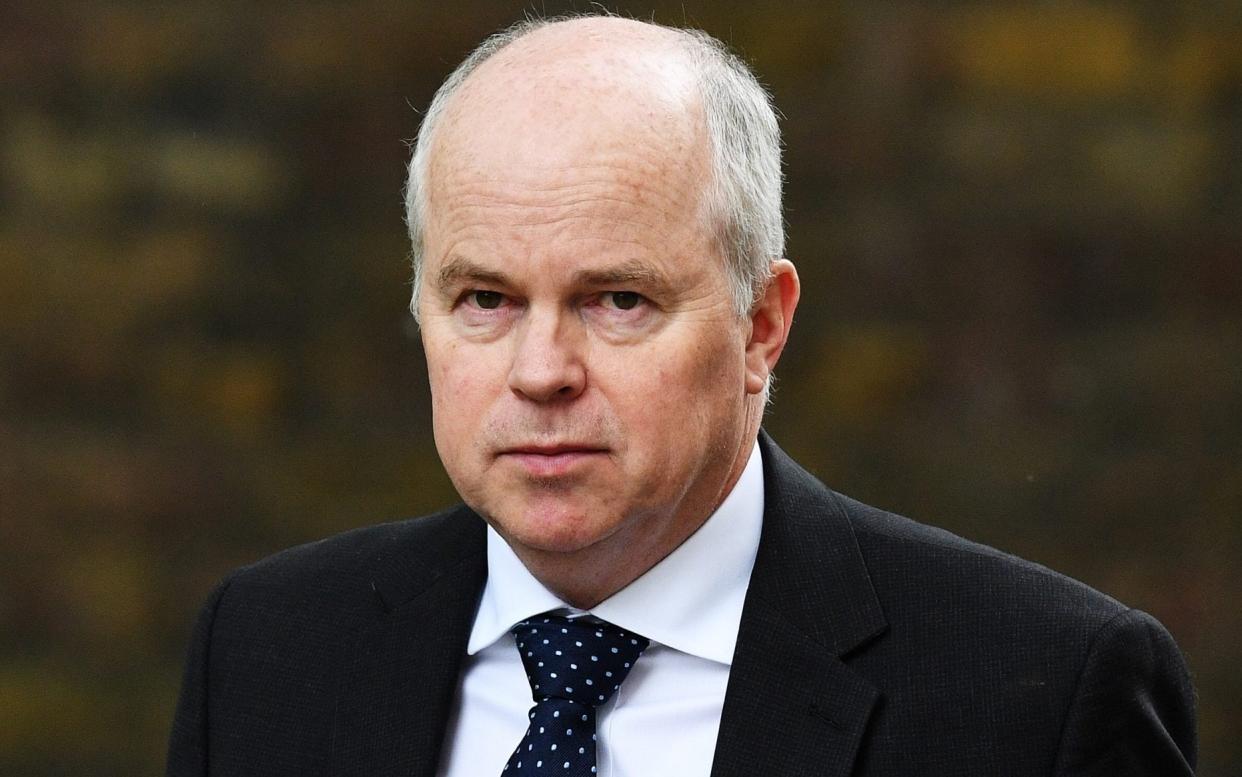Former Number 10 communications director Sir Robbie Gibb joins BBC board

- Oops!Something went wrong.Please try again later.
- Oops!Something went wrong.Please try again later.
Sir Robbie Gibb, a former Number 10 communications director under Theresa May and a vocal critic of BBC bias, has been appointed to the BBC's board.
Sir Robbie had a 25-year career at the corporation before moving into political communications, having held roles including editor of Daily Politics and head of BBC Westminster.
He will take up a three-year term as the England representative on the BBC board, which is responsible for ensuring that the corporation delivers its "mission and public purposes".
Sir Robbie was selected by the Department for Digital, Culture, Media and Sport, part of Boris Johnson's government. The position is paid.
The decision to appoint someone who only a few years ago was playing a central role in Conservative politics to a senior BBC position will raise eyebrows.
Sir Robbie told The Telegraph: "Throughout my time at the BBC and since leaving I have always believed that impartiality should be the BBC's number one priority because it is so critical to audience trust.
"The corporation has a big job to reform and make sure it once again becomes the gold standard for broadcasting impartiality – I am privileged to have the chance to play a part in helping the BBC achieve that."
Sir Robbie joined Number 10 in 2017 to advise Mrs May during her premiership. The following two years in Downing Street were dominated by the challenge of delivering Brexit.
Since leaving the political front line, Sir Robbie has at times been open about his concern that some BBC reporting has fallen short on its obligations for impartiality.
Writing for the Telegraph in October, he said: "The BBC can only justify itself as a publicly-funded broadcaster if it provides something its rivals do not – impartial news and entertainment that reflects the rich diversity of opinions and experiences across our country. The BBC has drifted too far from its core values and the people it serves.”
He will continue his roles as a senior communications adviser for the consultancy firm Kekst CNC and a director of the Jewish Chronicle newspaper. He had been adviser to GB News, the new British news channel launching shortly, but is understood to have stood down in October.
The BBC board's responsibilities include setting its strategic direction, creative remit for output and its budget. It is made up of 10 non-executive members, including the chairman, and four executive members including the director-general and editor-in-chief Tim Davie.
Mr Davie, who took up the post last September, has made impartiality at the BBC a top priority.

